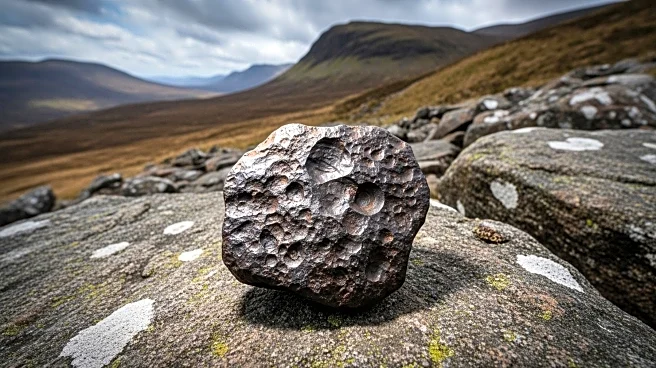What is the story about?
What's Happening?
A study led by Chris Kirkland of Curtin University has revised the date of a meteorite impact in Scotland from 1.2 billion years to approximately 990 million years ago. This adjustment reshapes the timeline of Earth's history, particularly regarding the spread of complex life beyond oceans. The research utilized zircon crystals and reidite minerals to precisely date the impact, providing a clearer understanding of the event's timing. The impact is linked to a period of significant biological and environmental changes, potentially influencing the evolution of life on land.
Why It's Important?
The revised dating of the Scottish meteorite impact offers new insights into the history of life on Earth, particularly the emergence of complex life forms in freshwater and terrestrial environments. By establishing a more accurate timeline, scientists can better understand the relationship between geological events and biological evolution. This research enhances the study of Earth's history and the factors that have shaped the development of life, contributing to broader scientific knowledge about planetary processes and habitability.
What's Next?
Further research is needed to locate the crater responsible for the Stac Fada ejecta and to explore its potential impact on early ecosystems. Scientists will continue to refine dating techniques and study nearby fossil-bearing rocks to investigate the effects of the impact on biological communities. The findings may lead to new questions about the role of meteorite impacts in shaping Earth's environment and the evolution of life.

















